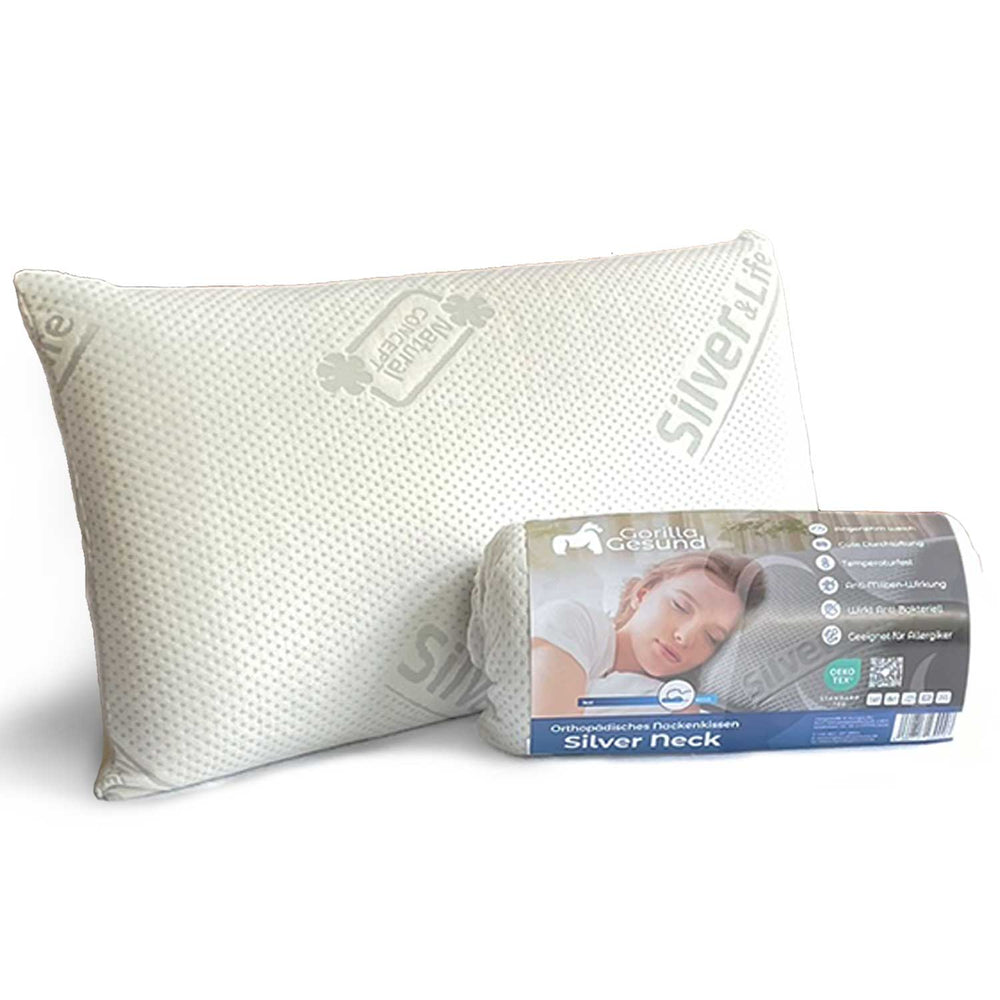
Healthy sleep: Tips against snoring for a restful night
Subtitle:
- Why do we snore and how does it affect our sleep?
- Practical tips from Gorilla Gesund to reduce snoring
- Using a humidifier
- A hot steam bath before going to bed
- Moisturizing the nasal passages with Ayurveda techniques
- Moisturizing the throat with olive oil and honey
- Using natural herbs to support a peaceful sleep
- The right sleep position for less snoring
- Healthy sleep for a better life with Gorilla Gesund
Restful sleep is crucial for our health and well-being. At Gorilla Gesund, we understand how important it is to maintain the right sleep habits to lead a healthy life. A common problem that can disrupt sleep is snoring. If you are among the people who snore while sleeping, you may not be aware of it, but your partner might confirm it. Snoring can not only affect your own sleep quality but also that of your partner. In this article, you will learn why people snore and what steps you can take to reduce snoring and enjoy a restful night's sleep.
Why do we snore?
When sleeping, the muscles in the throat relax, the tongue can fall back, and the throat becomes narrower and softer. When we breathe, the walls of the throat vibrate, producing the characteristic "snnnnnnaaaarch" sound. As we age, the throat muscles relax more, which is why older people snore more often. Being overweight can also contribute to snoring because there is more fat tissue around the neck. The structure of the nose and throat, alcohol consumption, and even sleeping position can also play a role. Dry air, illness, and allergies can also affect snoring.
At Gorilla Gesund, we want to give you some useful tips to reduce snoring and experience a peaceful night:
1. Use a humidifier
Air conditioners and heaters can dry out indoor air, and the sensitive tissues in the nose and throat react to this. Using a cool-mist humidifier helps increase humidity and makes nasal breathing more comfortable. You can also add a few drops of essential oil to the humidifier for additional benefits. Peppermint, tea tree oil, and eucalyptus can naturally open the nasal passages and help relieve snoring. And don't worry, if your dog snores, a humidifier can help them too!
2. Take a shower
A hot, steamy shower before bedtime helps reduce nasal congestion and makes breathing easier. Alternatively, you can inhale steam by placing a bowl of boiling water on a table (add essential oil if desired) and leaning over the bowl. Breathe deeply. You can place a towel over your head to create a tent effect that directs the steam toward your face. Allow at least 5 to 10 minutes for the effect.
3. Moisturize the nasal passages
Ayurveda, a 5,000-year-old Indian science of life, recommends moistening the nasal passages with sesame oil or ghee to reduce snoring. Ghee, also known as clarified butter, is used in many Ayurvedic home remedies for its healing properties. With clean hands, you can simply use your little finger to massage the inside of your nostrils with sesame oil or soft ghee. Close one nostril at a time and inhale the oil to add moisture further up in the nose. Repeat this process before going to bed and after waking up in the morning.
4. Moisturize the throat
Olive oil is a strong anti-inflammatory agent and can reduce swelling in the airways. It also relieves pain and decreases the vibrations in the throat that cause snoring. Simply take a shot glass of olive oil (two to three sips) before going to bed.
5. Use herbs
Natural herbs can help prevent snoring and promote a restful night's sleep. Peppermint has anti-inflammatory properties that can open up the entire respiratory system. Add a drop or two of peppermint oil to a glass of warm water and gargle with it before going to bed.
Turmeric is a powerful antibiotic and antiseptic and is one of the best herbs for relieving snoring. These properties are enhanced when turmeric is mixed with milk. This combination also makes it an amazing immune system booster! Mix two teaspoons of ground turmeric into a cup of warm milk to make "golden milk," an ancient Ayurvedic recipe that serves as a natural remedy for snoring relief. Drink this about half an hour before bedtime.
6. Sleep on your side
Sleeping on your back can cause the tongue to press into the throat and block airflow, which can lead to snoring. Instead, sleep on your side to reduce snoring. In this position, air can flow more easily, making it the best sleeping position to stop snoring. A well-chosen pillow can be your best ally. Make sure your pillow properly supports your head and neck.
Conclusion
At Gorilla Gesund, our goal is to help you enjoy a healthy and restful sleep. Snoring can not only affect your own sleep quality but also that of your partner. With these simple and natural tips, you can reduce snoring and enjoy a quiet night. Remember that chronic snoring may indicate a serious sleep disorder such as obstructive sleep apnea, so it is advisable to consult a specialist if snoring persists. Treat yourself to the soothing effects of restful sleep and start each day full of energy and joy!





































